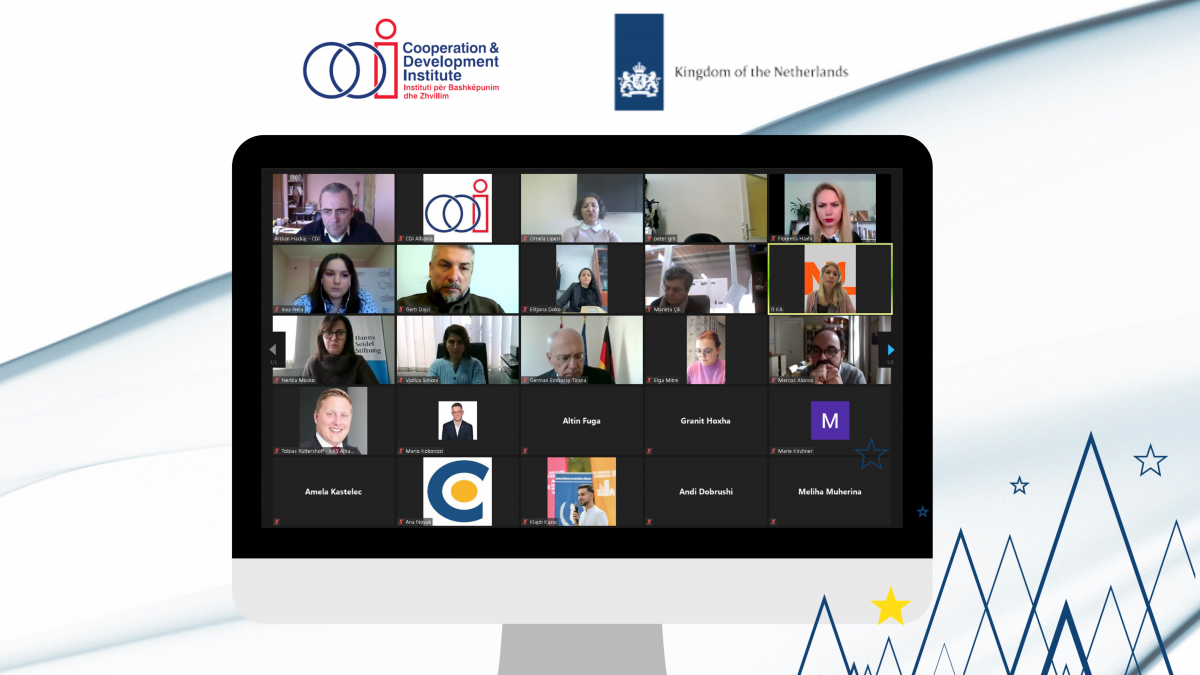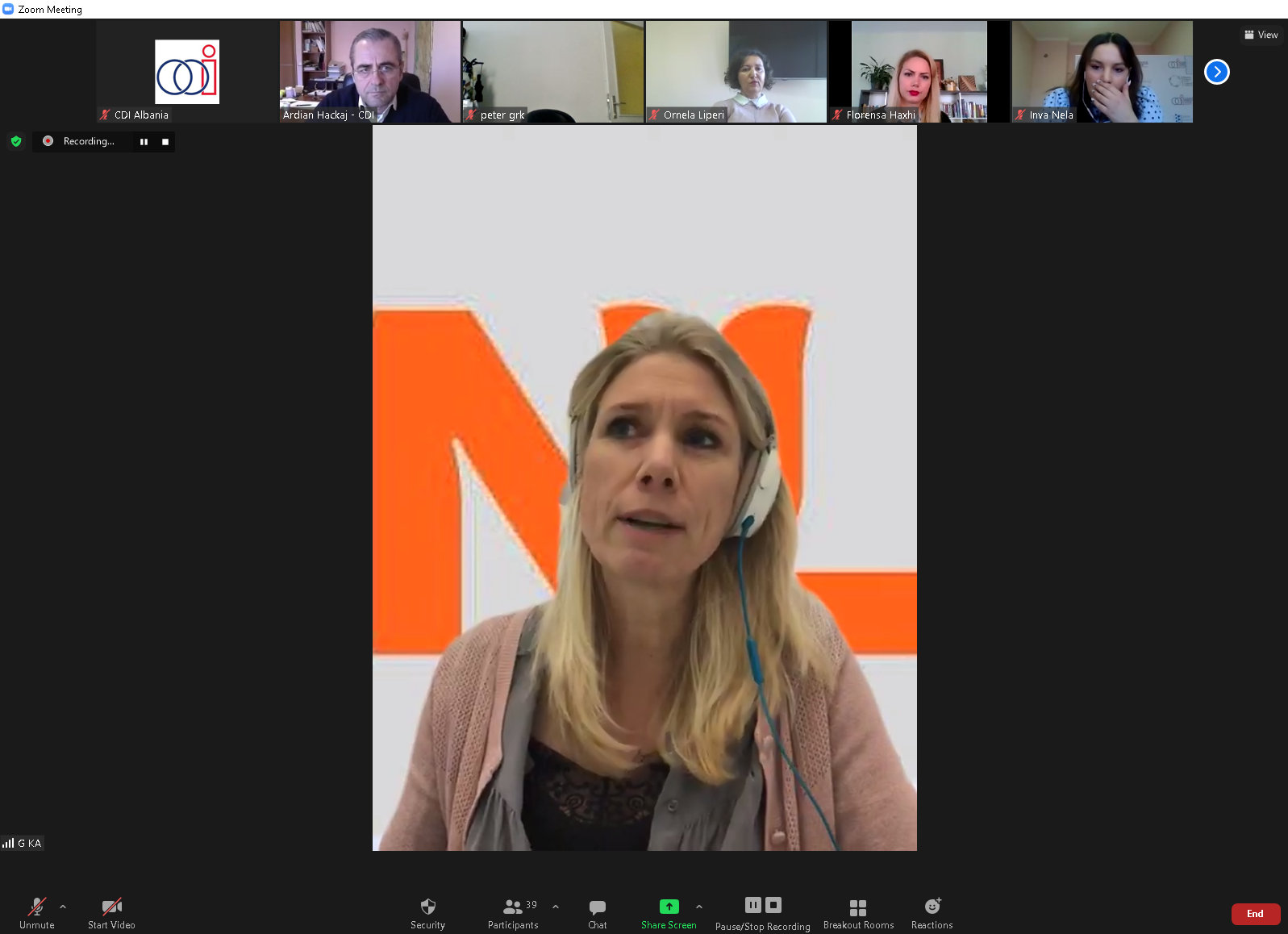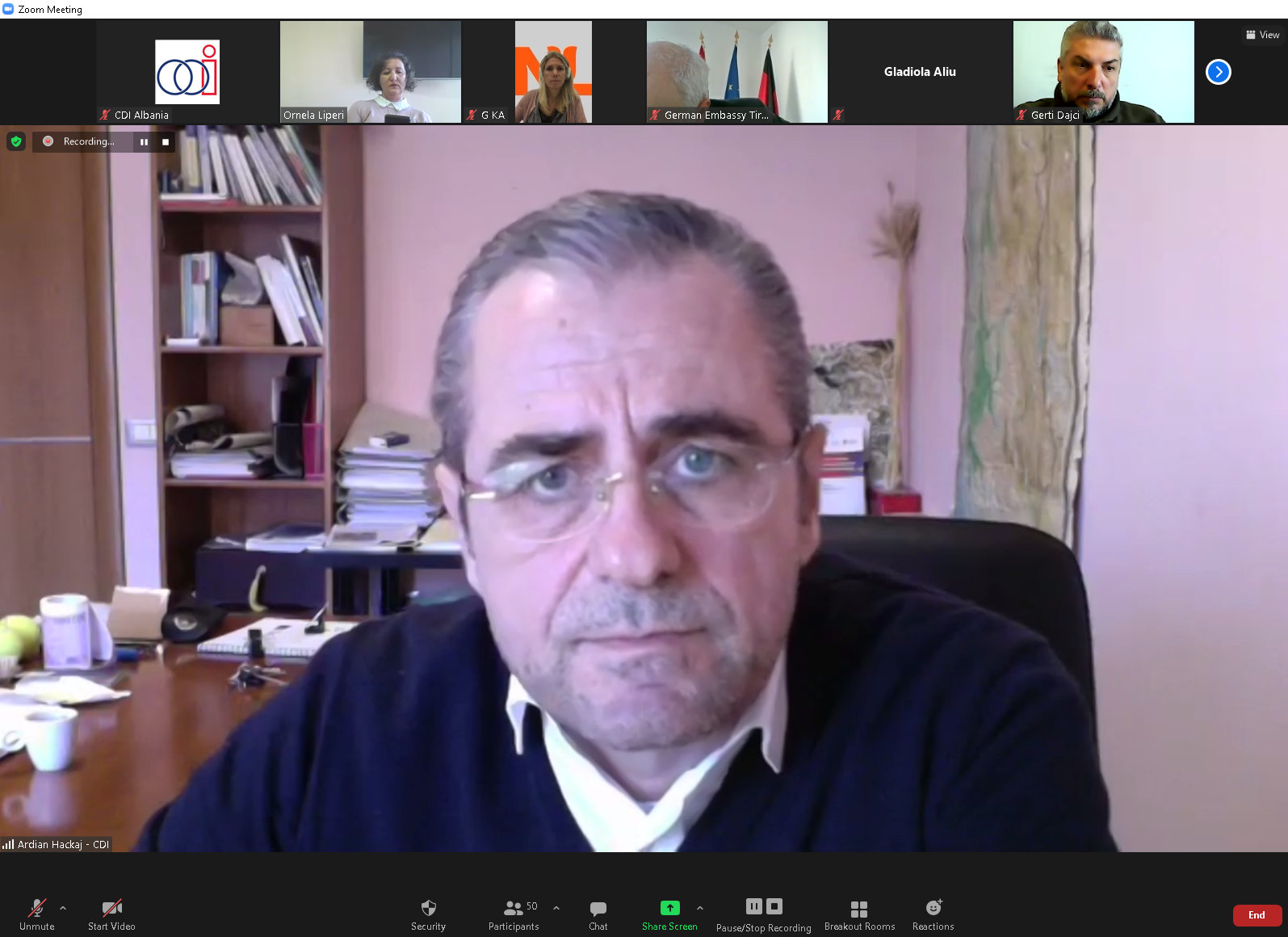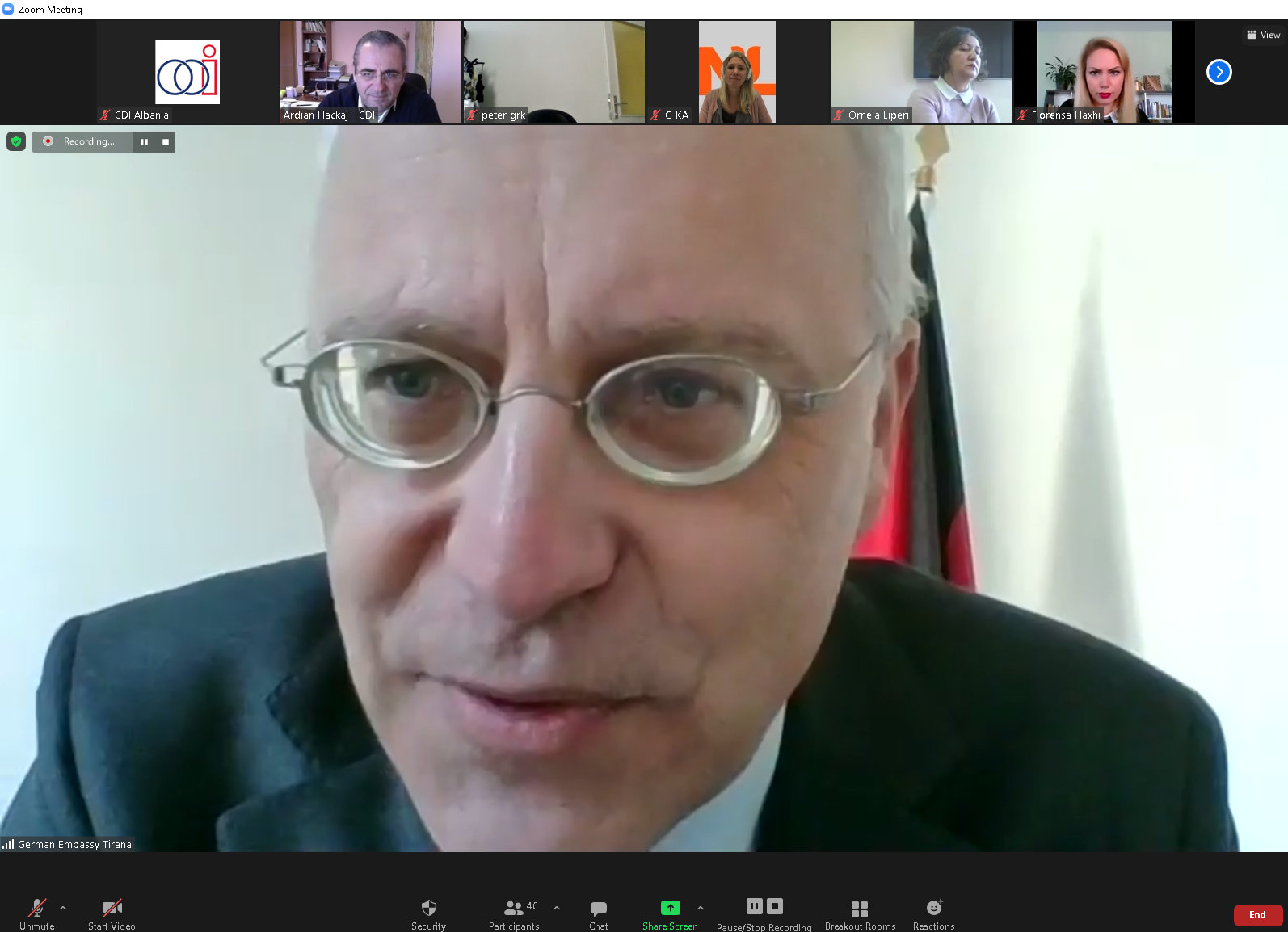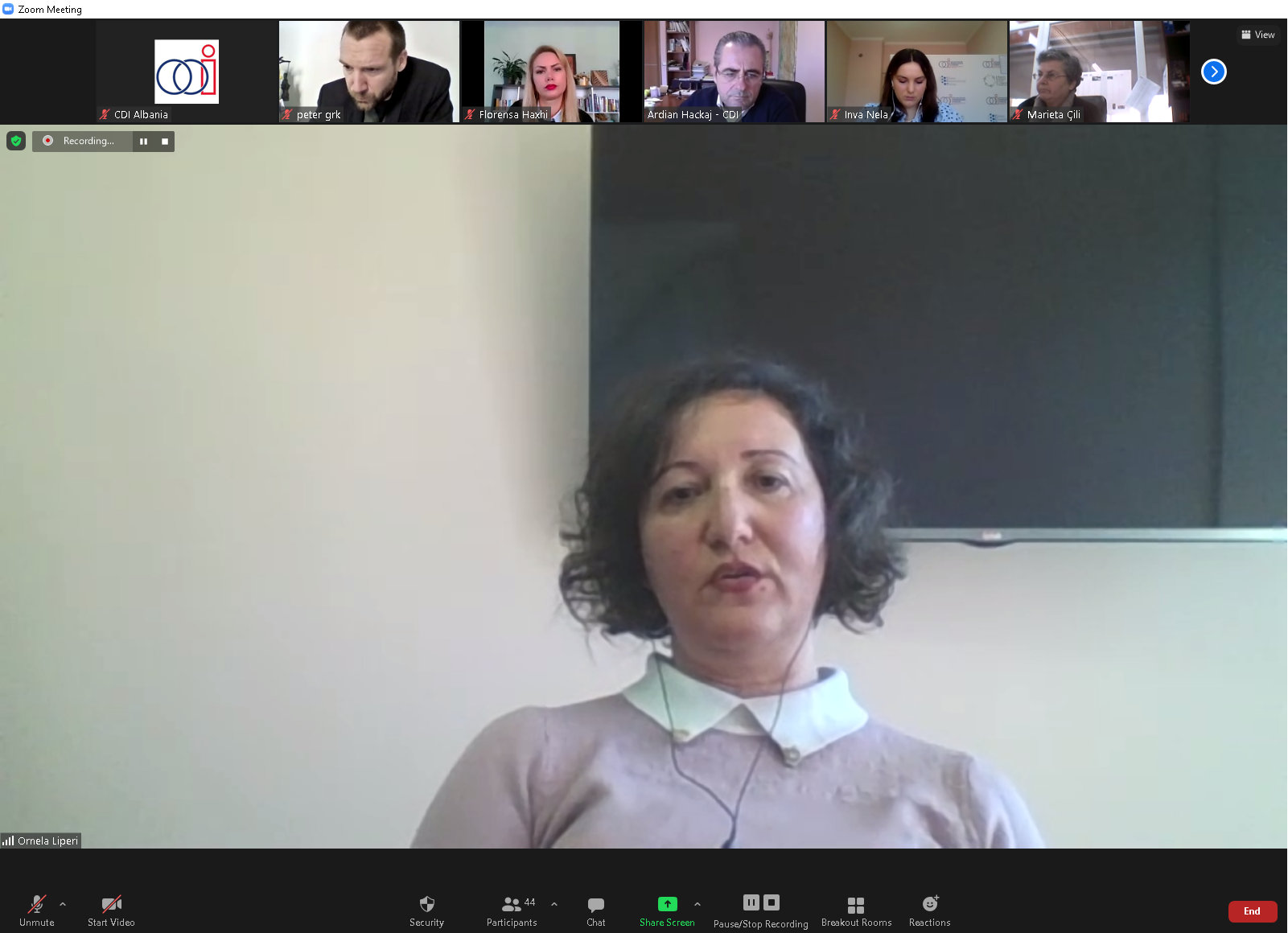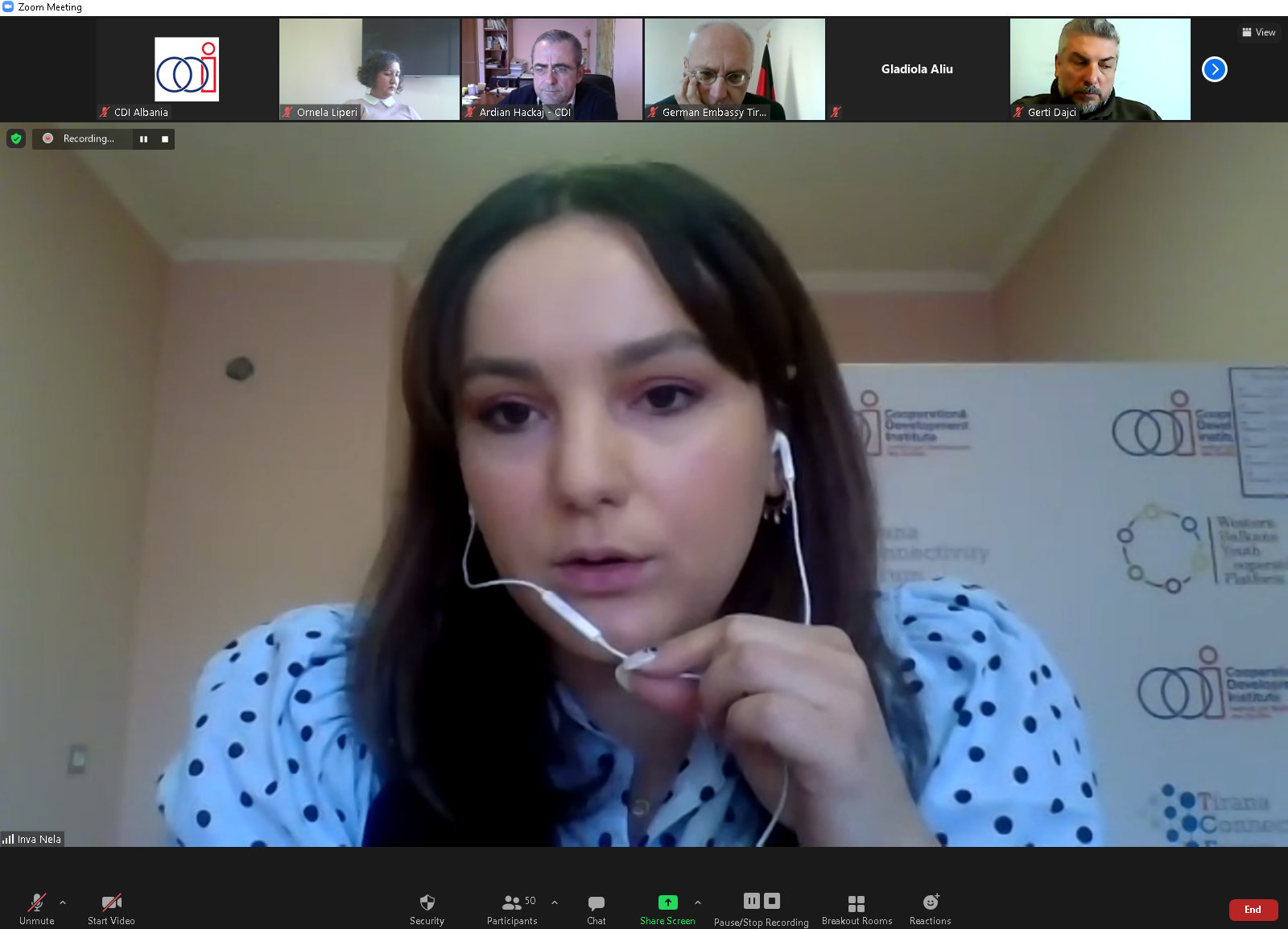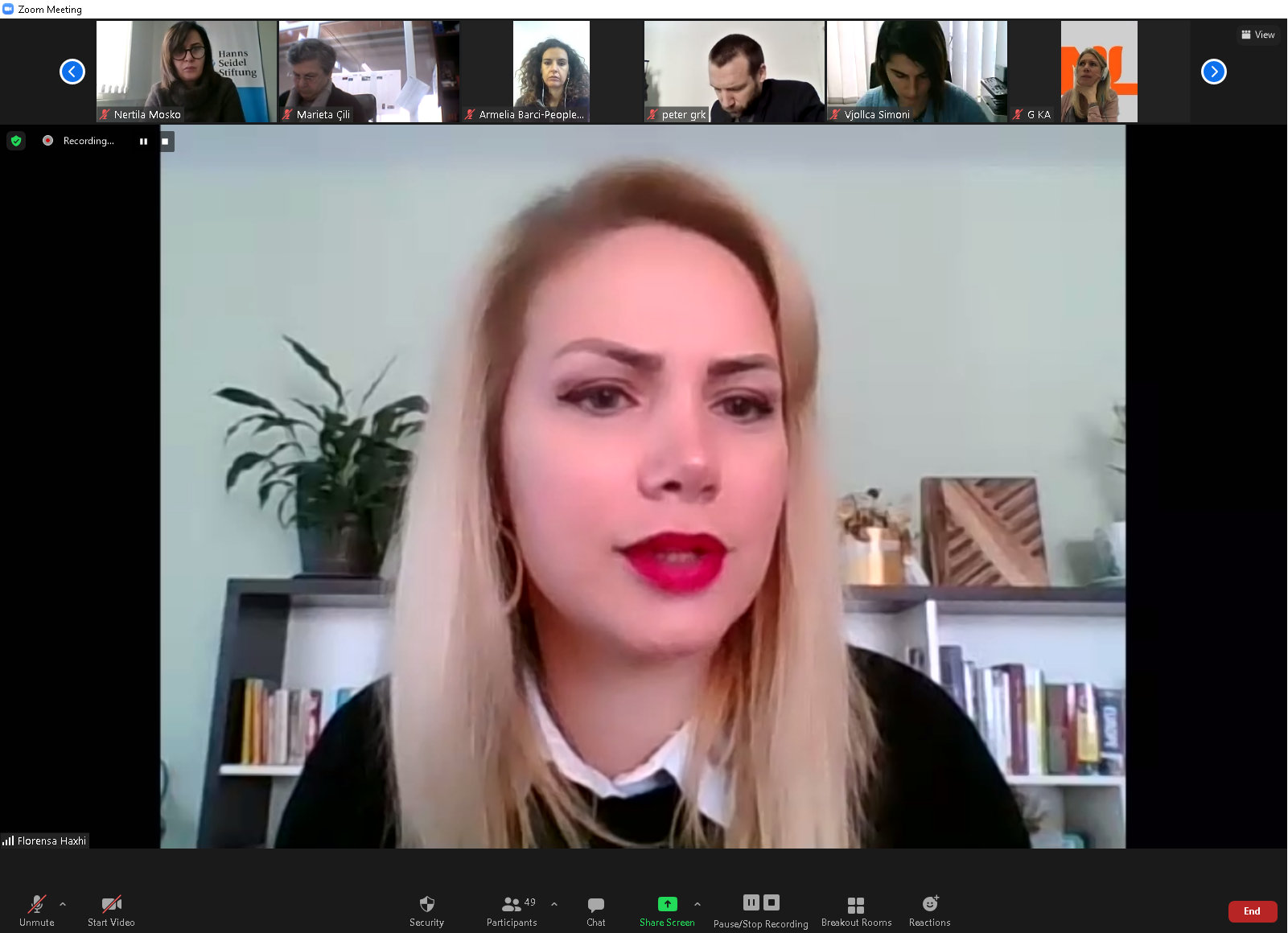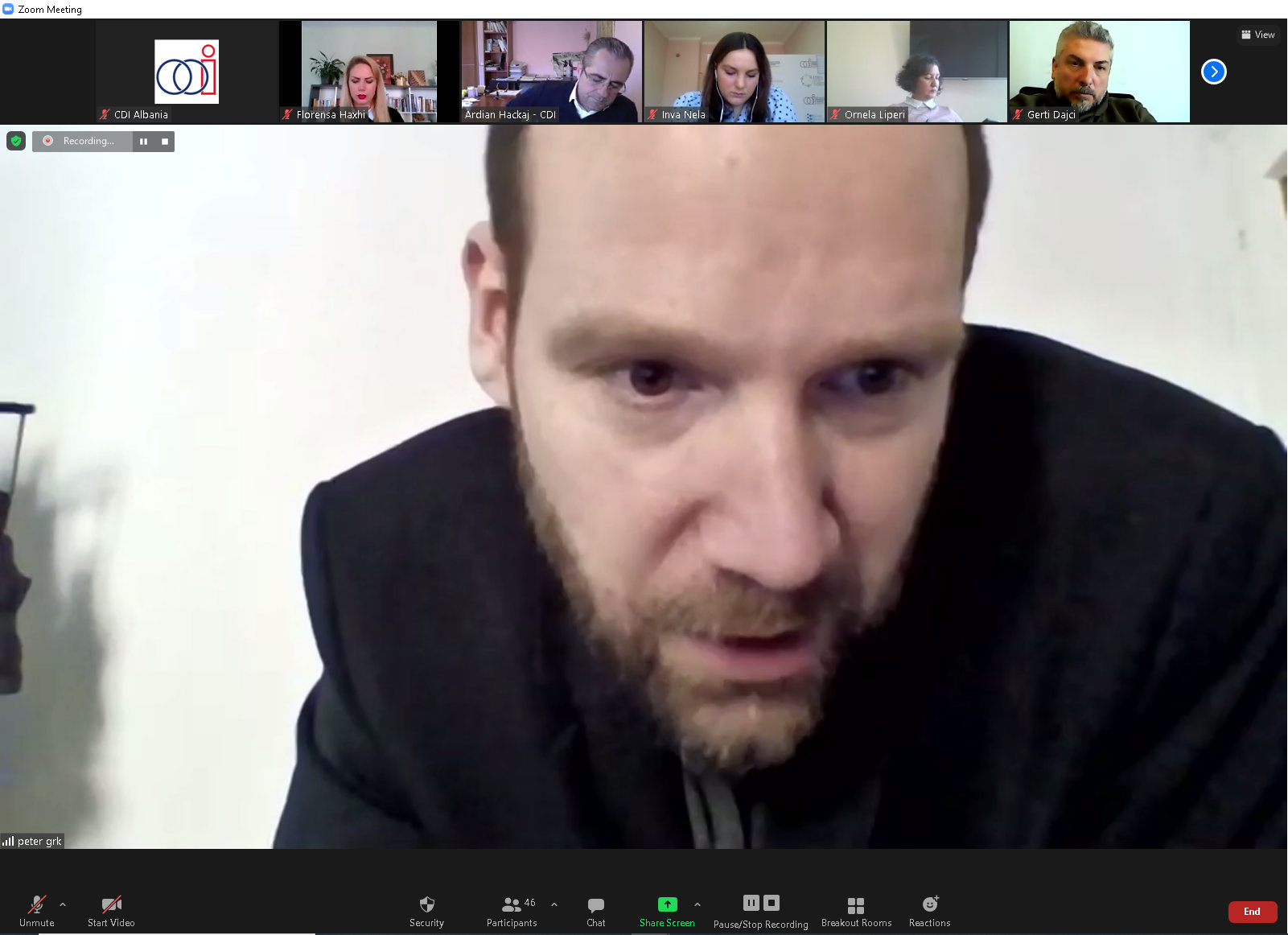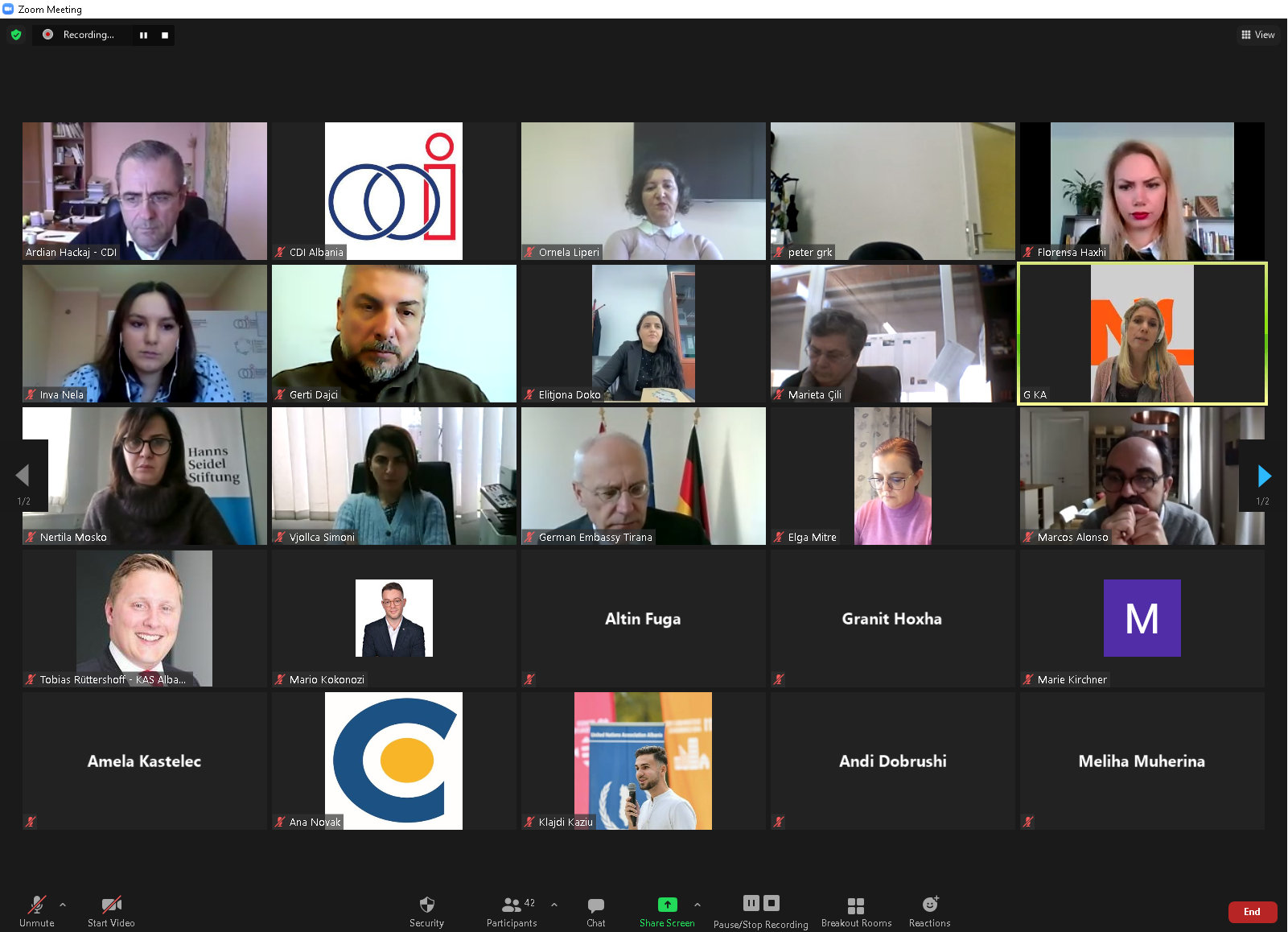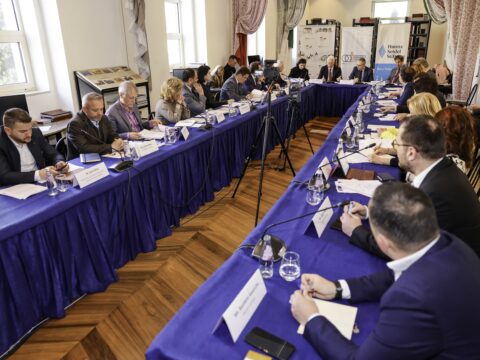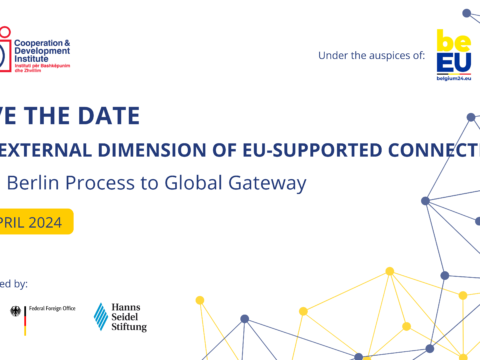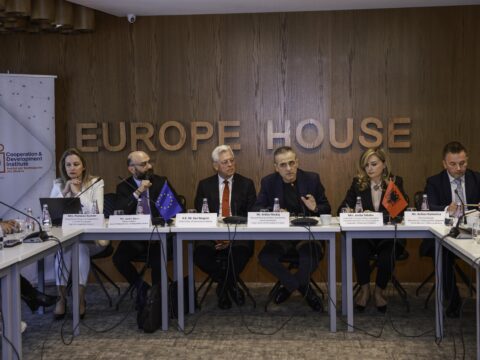Albania in the Berlin Process: Implementation of Infrastructure Projects | Progress Report December 2020
27 January 2021
Cooperation and Development Institute – CDI organized on 27 January, the online event “Berlin Process in 2021, the Case of Albania” who brought together connectivity experts and stakeholders to present the 2nd Progress Report on the Berlin Process in Albania covering the period up to December 2020. This event was a follow up of the previous roundtables in the framework of the project “Preparing and Supporting Albania in the EU Accession Process”, being implemented by CDI and supported by the Dutch Embassy in Tirana.
The focus of this event was the analysis of the impact of Berlin Process in Albania, with particular spotlight on the progress of connectivity projects in transport and energy sectors. In addition, the scope of discussion was enlarged by also focusing on the novelties of the Common Regional Markets – CRM and of the Economic and Investment Plan as presented in Sofia Summit, last November.
The event started with the welcoming remarks of Mr. Ardian Hackaj, Research Director of Cooperation and Development Institute, who emphasized the fact that Albania is the first country in SEE6 where Civil Society regularly monitors the progress and the achievements of the Connectivity Agenda under the Berlin Process. Mr. Hackaj added that this event marked the first of many that CDI will organize during 2021 that will be dedicated to the preparation of the 2021 Summit of the Berlin Process, which symbolically marks the completion of the first cycle of the Berlin Process.
The event was also greeted by H.E. Ms Guusje Korthals Altes, Ambassador of the Kingdom of the Netherlands in Albania and H.E. Peter Zingraf, German Ambassador to Albania. In their opening remarks, they highlighted that the Berlin Process aims to strengthen regional integration in the Western Balkans and that this “initiative” is contributes to the cohesion of the region with EU, and supports its European path. “By strengthening the cooperation and connectivity in the Western Balkans, at the same time we are making a stronger and more connected Europe”.
CDI expert and editor in chief of Monitor Magazine, Ms. Ornela Liperi, presented the state of affairs of 6 infrastructure Projects under implementation form Albania in the framework of the Connectivity Agenda. The presentation was illustrated by data on project funding, implementation stage, eventual changes of project site or destination, and next steps.
Ms. Inva Nela from CDI gave an overview of the main takeaways of the Sofia Summit focused on the Economic and Investment Plan (EIP) pillars: i) Sustainable Transport, ii) Clean Energy, iii) Environment and Climate, iv) Digital Future, v) Private Sector, and vi) Human Capital. In this context, institutional governance is of particular importance as a precondition for the successful management of funds, and timely project implementation. In addition, the EIP highlights the need for more high level coordination and political will from the European Union and Western Balkans countries.
Ms. Florensa Haxhi, Director General, Development Programs and Cooperation Unit, at the Prime Minister’s Office, Government of Albania focused on the novelties and priorities of the regional economic agenda where coordination amongst focal points and effective cooperation with other SEE6 countries is key. The introduction of the innovation area is a novelty of this action plan – Ms. Haxhi added.
The last panelist, Mr. Peter Grk, Secretary-General of Bled Strategic Forum and Western Balkans Coordinator at the Slovenian Ministry of Foreign Affairs emphasized that enlargement will be a priority of the Slovenian Presidency in the second part of 2021. The key focus will be to address its problems by: i) by putting pressure on the countries of the Western Balkans to move forward with reform processes, and; ii) by garnering political will of the EU to implement what we have agreed upon.
During a lively Q&A, the participants discussed on details regarding individual projects, the challenges they face, during implementation phase and the importance of political will as a defining factor for sustainable development is the SEE6.
The 2nd Progress report on the “Albania in the Berlin Process: Monitoring the Connectivity Agenda” will be released soon.
The agenda of the event can be consulted here.



